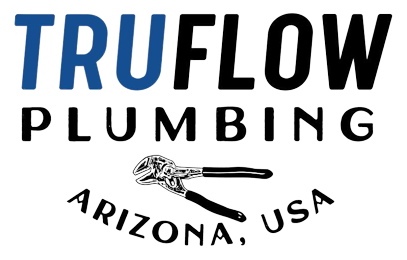Did you know clogged shower drains are a big problem for many? They affect 20.4 million Americans every year. It’s not just a small issue. It can become a big problem if not fixed quickly.
There are many reasons for clogs, like hair, soap, minerals, and even tree roots. Knowing these can help you fix the problem better. It’s important to know how to do it safely and effectively.
Fixing a clogged shower drain starts with figuring out what’s causing it. Then, you can try different DIY methods. Or hire pros to clean your shower drain to make it simple and easy.
Simple steps like removing hair or using hot water, baking soda, and vinegar can work well. Always wear gloves and protect your eyes when using chemicals or doing manual work.
Learn how to tackle a badly clogged shower drain in this detailed guide.
Key Takeaways
- Multiple methods are often necessary for effective shower drain clog removal due to various blockage types.
- Boiling water is effective for metal pipes but not recommended for PVC pipes to avoid heat damage.
- A combination of 1/3 cup of baking soda and 1/3 cup of vinegar can tackle persistent clogs.
- Plungers and plumber’s snakes offer mechanical solutions for stubborn blockages.
- Safety measures, including wearing rubber gloves and using eye protection, are essential when handling chemicals or unclogging drains manually.
Understanding the Causes of a Clogged Shower Drain
Shower drains often get clogged with hair, soap scum, and hard water minerals. These substances stick to the pipe walls. Over time, they trap more debris, causing big blockages.
Hair, especially long strands, is a big problem. It gets tangled and holds onto other stuff, blocking the drain. Soap adds grease and fats that build up in the pipes. This makes it harder to clear the blockage.
Hard water also plays a big role. It causes mineral deposits in the pipes. These deposits slow down water flow and make clogs worse. Eventually, these issues can lead to severely clogged drains that need more effort to fix.
- Hair build-up is notably one of the most common causes of blocked shower drains.
- Soap scum and skin particles accumulate, contributing to slow or clogged drains.
- The calcification from hard water further complicates the issue, potentially leading to leaks and additional damage.
Other factors include sediment in old pipes and broken pipes. These can block water flow and cause leaks. Fixing a severely clogged shower drain can be tough.
Children’s actions can also lead to clogs by putting objects in the drain. If pipes are installed wrong, it can cause problems too.
Preventive measures like using shower drain catchers can help. Natural solutions like boiling water with vinegar and baking soda can also reduce blockages. This way, you won’t need to clear the drain as often.
For tough cases, calling professional plumbers is a good idea. They use tools like CCTV drain cameras and high-pressure jetters. These tools can help clear stubborn clogs.
Effective Methods to Unblock a Shower Drain
Fixing a blocked shower drain needs the right approach, based on the clog’s type and how bad it is. Keeping your shower drain clear is key to avoid bigger problems like pipes freezing and bursting in cold weather.
Using drain strainers or covers can stop hair, body scrubs, and soap from clogging the drain. A vinegar and baking soda mix monthly helps keep the drain clean from shampoo, conditioner, and soap.
If DIY methods don’t work, getting a plumber is crucial. They can handle serious clogs like blockages in the p trap or drain line. Make sure the plumber knows about any chemicals or homemade solutions you’ve tried to avoid more damage.
Knowing how to clear a clogged shower drain and keeping up with home maintenance can stop future problems and save you money.
How do you unblock a badly clogged shower drain?
Fixing a severely blocked shower drain needs a few steps. Start by removing any visible debris and flushing with hot water. This works well for soap scum or small hair clumps.
If that doesn’t work, try baking soda and white vinegar. Mix half a cup of each, then let it fizz for 30 minutes. Finally, rinse with hot water. This combo can dissolve grease and soap scum.
For tough clogs, use a plunger or plumber’s snake. Apply petroleum jelly to the plunger for a better seal. Plunge hard to clear the blockage. If needed, a plumber’s snake can reach deep to remove clogs.
Always wear gloves and use a flashlight when working on the drain. If you can’t clear the blockage, call a professional plumber. This avoids more damage.
Preventing clogs is easier than fixing them. Use drain covers to catch hair, and clean the drain regularly. Natural cleaners can keep your shower drain flowing well and your plumbing system healthy.
Conclusion
Fixing a severely clogged shower drain starts with knowing why it’s clogged. It could be from soap scum, hair, or hard water. The right methods can save time and avoid more damage.
For hair and soap scum, using a drain snake or baking soda and vinegar works well. These methods target the problem without harming your pipes.
It’s important to know the risks of different methods. Boiling water can clear grease but might damage PVC pipes. A baking soda and vinegar mix is safer and better for the environment.
Chemical drain cleaners might clear clogs quickly but can harm your pipes over time. This can lead to big plumbing problems.
Preventing clogs is key. Use drain protectors and don’t put the wrong things down the drain. Flushing pipes with hot water helps too.
Regular upkeep keeps your plumbing in good shape. This can save you money on repairs in the long run.
If clogs keep coming back, it’s time to call a plumber. They can fix problems before they get worse. This keeps your plumbing working well for years.
